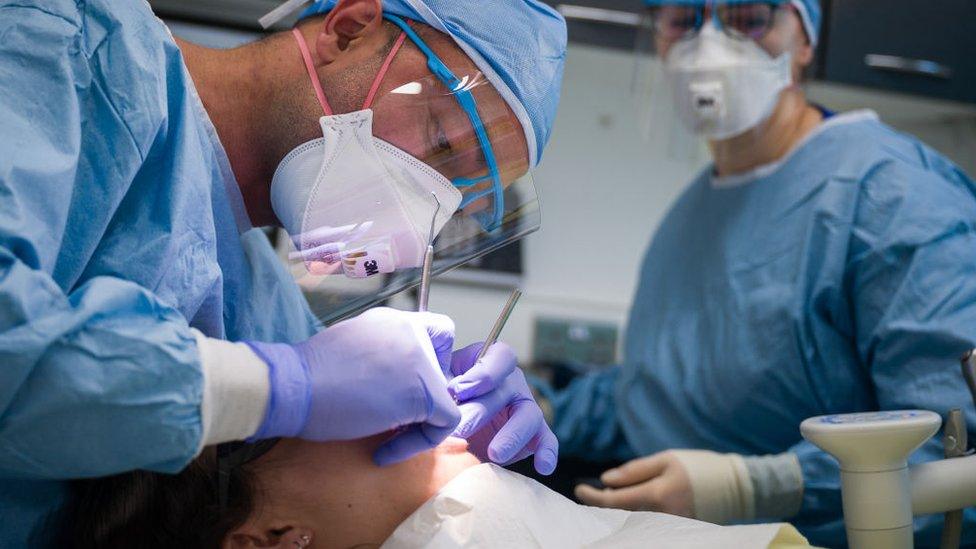NHS dentistry as we know it 'gone for good'
- Published
- comments
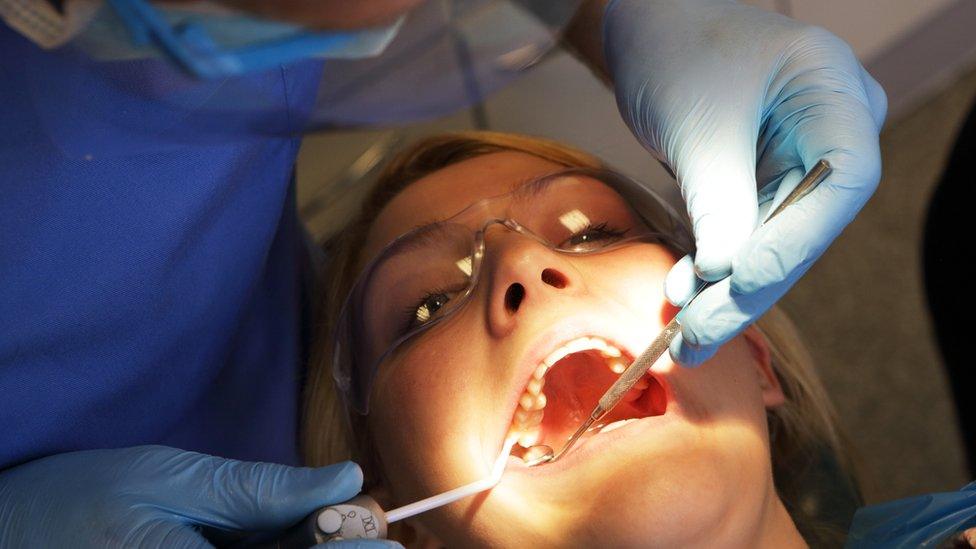
The traditional model of NHS dentistry is gone for good, experts are warning.
The Nuffield Trust think tank said the service had been cut back so much it was now at the most perilous position in its 75-year history in England.
It said restoring services would probably need an unrealistic amount of money and called for radical reform, suggesting NHS support may need to be completely scaled back for some adults.
The government said it would be publishing a recovery plan soon.
The Nuffield Trust said funding for NHS dentistry had suffered huge cuts in recent years. Some £3.1bn was spent in 2021-22 - a drop of £525m since 2014-15 once inflation is taken into account.
It said the number of treatments being done each year was now six million lower than it was before the pandemic.
The original universal service is a mix of free care for some and subsidised support for others.
The Nuffield Trust said tough policy choices needed to be made, suggesting one option could be to start charging adults for the full cost of treatment beyond emergency work and check-ups.
The young, old and those on the lowest income could then continue to receive free care.

'My family hasn't seen a dentist for four years'
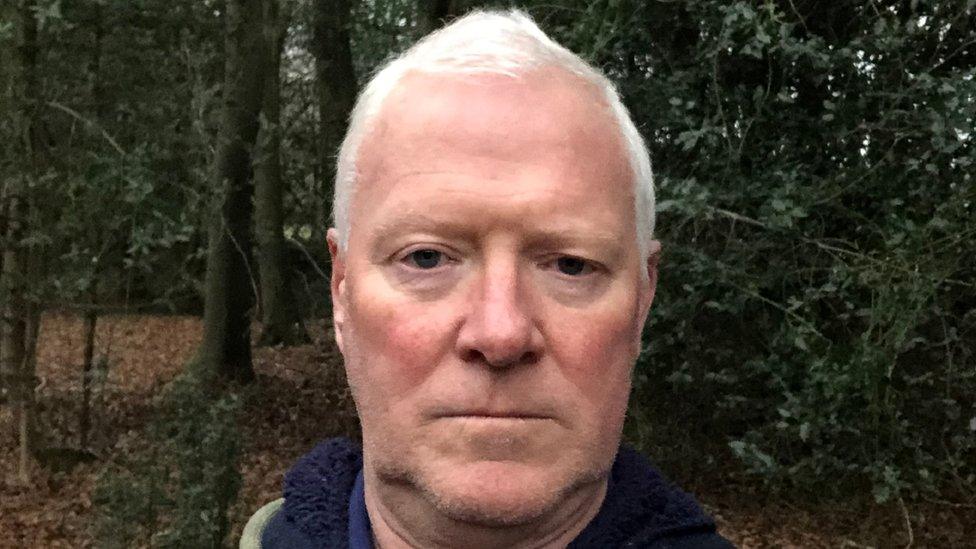
Peter Williams: "If there was an emergency I would just have to pay privately"
Peter Williams and his family last saw an NHS dentist in 2019.
"Very soon after our dentist reopened its doors after Covid we received a letter saying they were no longer treating NHS patients and we would have to take out a private dentistry plan or pay for our treatment."
Despite regularly trying local dentists close to him in West Sussex, he has not been able to find one willing to take on new NHS patients.
"They either only accept private patients or their NHS slots are all full.
"It is impossible. My children are 19 and 17 and they haven't had a check-up for four years.
"I think it is really unfair, particularly on children.
"If there was an emergency I would just have to pay privately for treatment. But that is not right."

Nuffield Trust chief executive Thea Stein said: "Difficult and frankly unpalatable policy choices will need to be made. If, as it seems, the original model of NHS dentistry is gone for good, then surely the imperative is to provide enough access for a basic core service for those most in need.
"Whichever way we go, I'm afraid that NHS dentistry cannot continue without some kind of evaluation of the offer, even if there are some major improvements to the way services are contracted and commissioned."
The think tank said while the data underpinning this report is for England only, there was little to suggest the other parts of the UK were not struggling either.
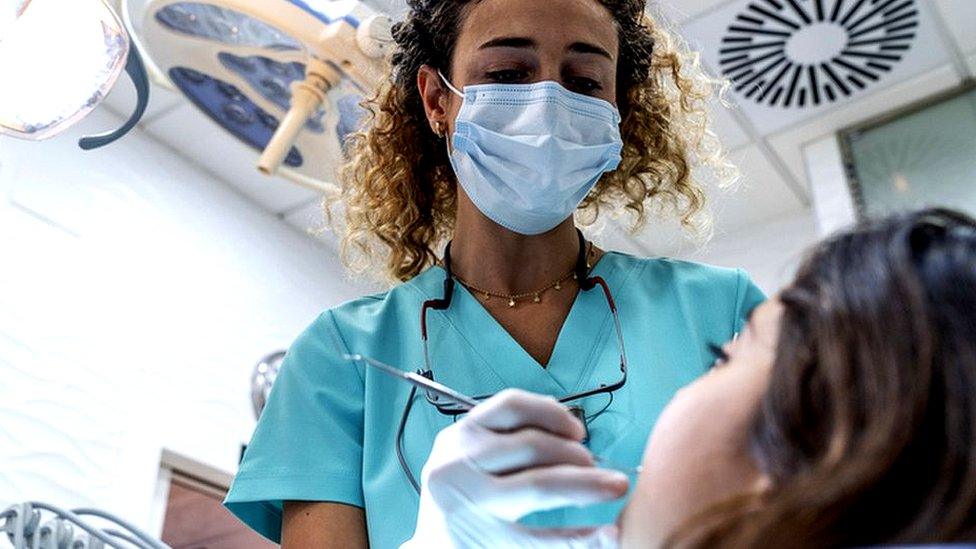
Health officials say they have already taken steps to improve access
Louise Ansari, of patient watchdog Healthwatch England, said the government "urgently" needed to act.
Shawn Charlwood, chairman of the British Dental Association's general dental practice committee, said the report "reads like the last rites for NHS dentistry" and that "patients and this profession deserve some honesty here".
He added: "The government say NHS dentistry should be accessible for all who need it.
"The plain facts are we're not seeing any evidence of the reforms or the resources to realise that ambition."
The Department of Health and Social Care said it would be publishing a dental recovery plan shortly and had already taken steps to improve access, including increasing dental training places by 40%.
"We are making progress to boost NHS dental services," a spokesman added.
The Nuffield Trust report was released as Labour published its own analysis of NHS data showing eight in 10 dental practices were not accepting new NHS patients - similar to figures from a BBC investigation last year.
The party said it would pump extra money into the system by abolishing the non-dom tax status, which allows people living in the UK to avoid paying UK tax on money they made outside the country.
It said this would help to create hundreds of thousands more urgent appointments.
But the Nuffield Trust said that would probably still not be enough.
- Published8 November 2023
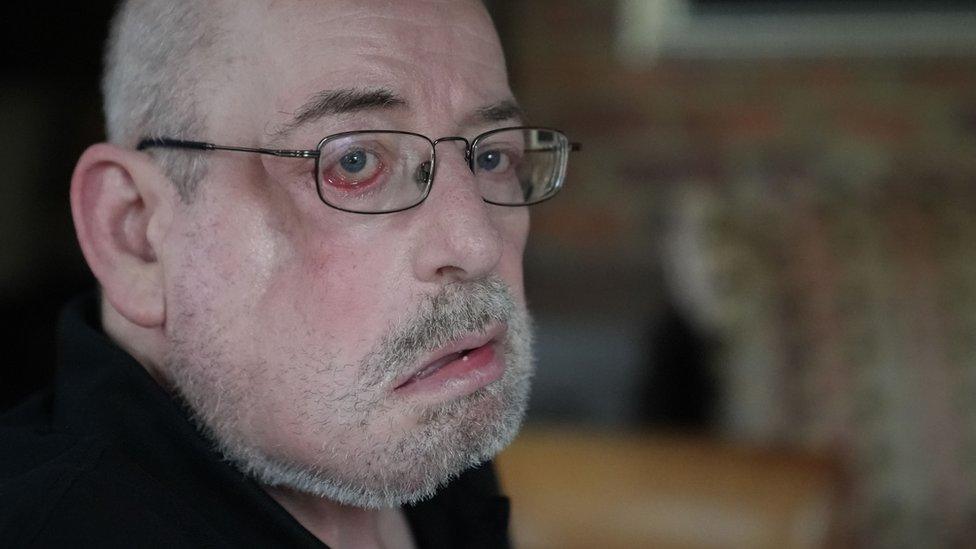
- Published14 July 2023
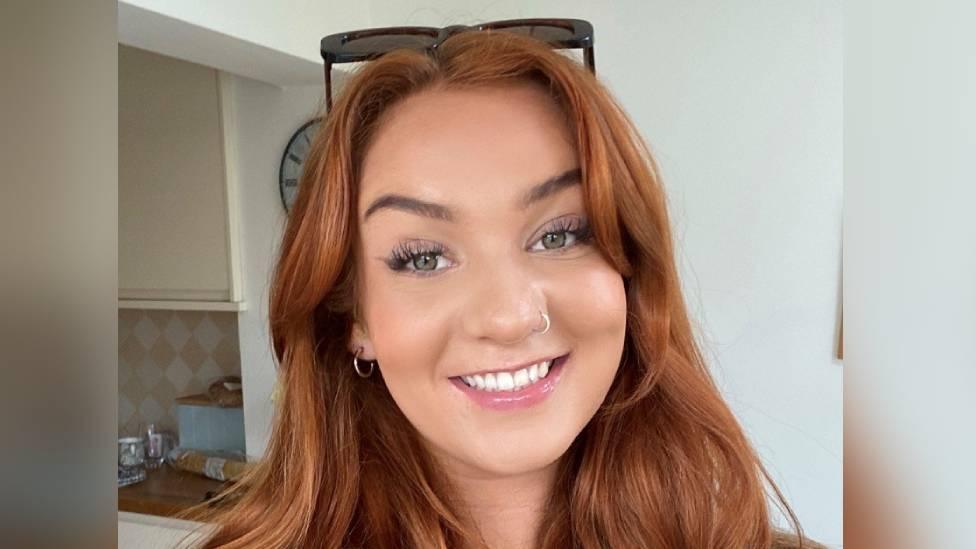
- Published8 August 2022
